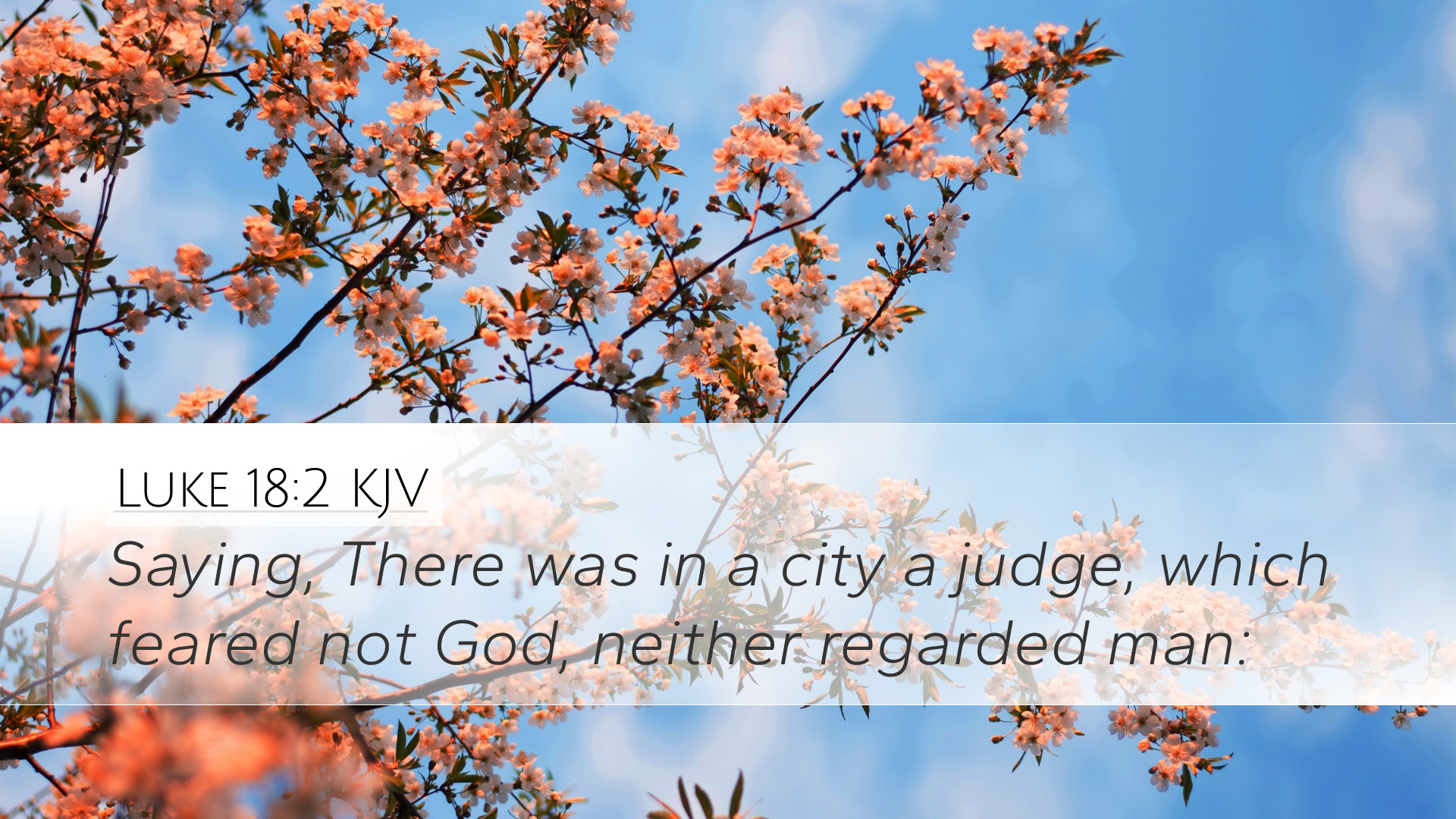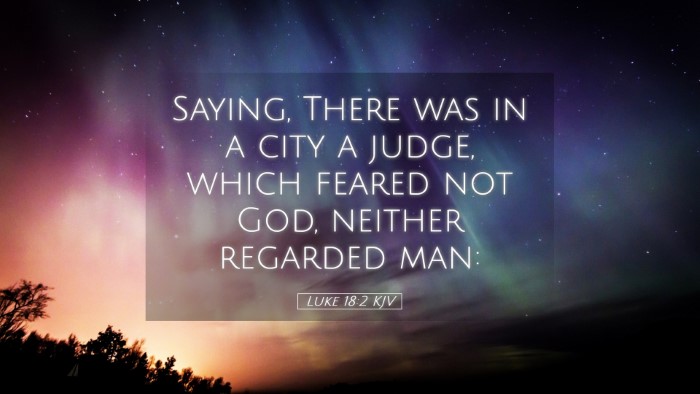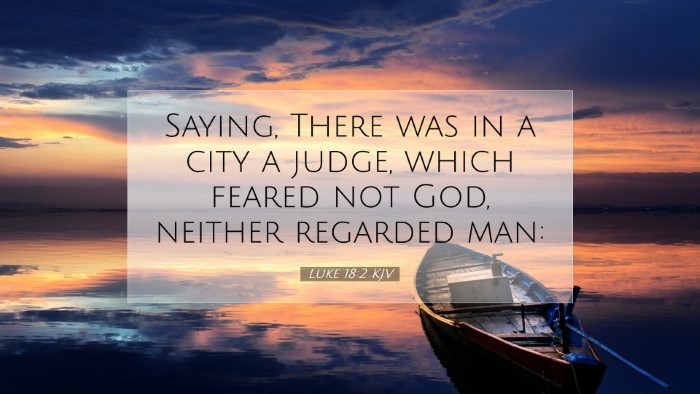Commentary on Luke 18:2
Luke 18:2 states, "Saying, There was in a city a judge, which feared not God, neither regarded man." This verse introduces a parable told by Jesus, illustrating the nature of persistence in prayer and the character of God in relation to those who seek His justice.
Context and Background
The context of this verse is crucial for understanding the message of the parable. Luke 18:1 encourages believers to always pray and not to faint. As part of this encouragement, Jesus presents the story of an unjust judge, contrasting human imperfection with divine righteousness.
Insights from Public Domain Commentaries
-
Matthew Henry's Commentary:
Henry emphasizes the character of the judge, noting that his lack of fear of God and disregard for man reflects the broader societal issues of injustice. The unjust judge symbolizes the unholy leadership that can exist in human institutions, and the parable serves to remind believers that God is just even when human beings fail in their responsibilities.
-
Albert Barnes' Notes:
Barnes points out the setting of the city where the judge presides. The city symbolizes a community that may lack moral integrity, as the judge does not embody the qualities expected of a righteous leader. This sets the stage for the ensuing conflict between the widow and the judge, representing God's people who are often oppressed and marginalized.
-
Adam Clarke's Commentary:
Clarke elaborates on the implications of fearing God. The absence of such fear in the judge's character indicates a moral vacuum, questioning the integrity of societal leaders. Clarke also highlights that God is ultimately just, implying that despite temporary injustices, believers can trust in God's eventual vindication.
Theological Implications
Luke 18:2 serves as an indictment of unjust authority and a promise to the oppressed. It brings to light fundamental issues such as:
- The nature of justice: God’s justice is unwavering compared to human institutions that may fail.
- The persistence in prayer: The parable teaches that even in the face of apparent indifference, the faithful must continue to seek justice from God.
- The character of God: Unlike the unjust judge, God is described as compassionate and loving. This alludes to the truth that God hears the cries of His people.
Practical Application
For pastors and theologians, the implications of this verse extend to preaching and teaching about God's nature, the significance of prayer, and the assurance of divine justice. The parable encourages a robust prayer life among congregants, challenging them to lay their burdens before God persistently.
Conclusion
In concluding the analysis of Luke 18:2, it is vital to grasp the contrast between the unjust judge and the character of God, which should inspire believers to trust God profoundly. The call to persistent prayer highlights the relationship between human struggle and divine responsiveness, encouraging believers not to lose heart in their quest for justice and righteousness.


